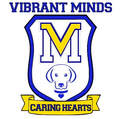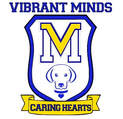VMCS GATE PROGRAM
|
Vibrant Minds Charter School screens our seconds graders toward the end of the school year to determine if they qualify for GATE. Additionally, teachers and parents recommend scholars in Grades 3-6 for GATE testing. Our school uses the same high standard for GATE qualification as in the surrounding schools -- 98 percentile or above on a standardized test associated with IQ.
|
|
Here are some samples of our G.A.T.E. projects
|
| ||||||
Mentor Supported
Each of our GATE scholars will be assigned one project, each trimester, for a total of three projects. The mentor will meet with each mentee at least once a week informally and/or formally. During this meeting, the mentor will check on the scholar and determine if s/he is being sufficiently challenged or needs support. The mentor also helps the scholar connect with other specialists and resources that can support his/her interests and talents and convert them into strengths. This includes the development and implementation of Tier 1 and Tier 2 projects.
Tier 1 and Tier Opportunities
Tier 1 opportunities are associated with Project-Based Learning and Tier 2 opportunities are associated with service. While participation in both Tier 1 and Tier 2 is encouraged, it is voluntary. Because of our rigorous academic programs and plethora of enrichment opportunities, our scholars and parents may feel it is unnecessary to also participate in this component of the GATE Program. Regardless, each scholar maintains his/her GATE qualification regardless of program participation. And, there is an ongoing differentiation, individualization, and personalization of the curriculum in the regular classroom.
Tier 1 : Project-Based Learning
Each GATE scholar will be encouraged to choose a project. This project may be chosen from the categories below, or s/he may present an idea approved by a mentor in the designated area of expertise. This completed project will be presented at the end of each trimester. During the presentation, the scholar will need to explain the purpose of the project, the challenges of completing the project, what was learned about him/herself during the process, and how the project contributes to the world.
Project-Based Learning (PBL) is a scholar-centered pedagogy that involves a dynamic learning approach in which scholars acquire a deeper knowledge through active exploration of real-world challenges and problems. Scholars learn about a subject by working for an extended period of time to investigate and respond to a complex question, challenge, or problem. It is a style of active learning and inquiry-based learning. PBL contrasts with paper-based, rote memorization, or teacher-led instruction that presents established facts or portrays a smooth path to knowledge by instead posing questions, problems, or scenarios.
Proponents of Project-Based Learning cite numerous benefits to the implementation of its strategies in the classroom and beyond – including a greater depth of understanding of concepts, broader knowledge base, improved communication and interpersonal/social skills, enhanced leadership skills, increased creativity, and improved writing skills. Another definition of Project-Based Learning includes a type of instruction, where scholars work together to solve real-world problems in their schools and communities. Successful problem-solving often requires scholars to draw on lessons from several disciplines and apply them in a very practical way. The promise of seeing a very real impact becomes the motivation for learning.
Projects should have the following Design Elements [1]:
Project-Based Learning (PBL) is a scholar-centered pedagogy that involves a dynamic learning approach in which scholars acquire a deeper knowledge through active exploration of real-world challenges and problems. Scholars learn about a subject by working for an extended period of time to investigate and respond to a complex question, challenge, or problem. It is a style of active learning and inquiry-based learning. PBL contrasts with paper-based, rote memorization, or teacher-led instruction that presents established facts or portrays a smooth path to knowledge by instead posing questions, problems, or scenarios.
Proponents of Project-Based Learning cite numerous benefits to the implementation of its strategies in the classroom and beyond – including a greater depth of understanding of concepts, broader knowledge base, improved communication and interpersonal/social skills, enhanced leadership skills, increased creativity, and improved writing skills. Another definition of Project-Based Learning includes a type of instruction, where scholars work together to solve real-world problems in their schools and communities. Successful problem-solving often requires scholars to draw on lessons from several disciplines and apply them in a very practical way. The promise of seeing a very real impact becomes the motivation for learning.
Projects should have the following Design Elements [1]:
- Key Knowledge Understanding, and Success Skills -- The project is focused on scholars’ learning goals, including standards-based content and skills such as critical thinking/problem solving, communication, self-management and collaboration.
- Challenging Problem or Question -- The project is framed by a meaningful problem to solve or a question to answer, at the appropriate level of challenge.
- Sustained Inquiry -- Scholars engage in rigorous extended process of asking questions, finding resources, and applying information.
- Authenticity -- The project involves a real-world context, tasks and tools, quality standards or impact, and/or speaks to scholars’ personal concerns, interests, and issues in their lives.
- Scholar Voice and Choice -- Scholars make some decisions about the project, including how they work and what they create.
- Reflection -- Scholars and teachers reflect on learning, the effectiveness of their inquiry and project activities, the quality of scholar’s work, and obstacles and how to overcome them.
- Critique and Revision -- Scholars give, receive, and use feedback to improve their processes and products with their mentors on a continual basis. Scholars will be consulting with their mentor on a weekly basis to check their progress and discuss challenges they may be having.
- Public Product -- Scholars make their project work public by explaining, displaying, and/or presenting it to people beyond the classroom. This will be conducted on a trimester basis during an evening event that families will be invited to attend.
Categories for Projects and Possible Project Concepts
What GATE scholars decide to pursue for their projects needs to be highly motivating to them. And, they need to be able to enlist the support of mentors and/or specialists, whether provided by home, school, or a combination of both. The list below is merely provided to get the creative juices flowing. The suggestions should not be viewed as limiting.
Life Skill
- Prepare a meal
- Business concept/ownership
- Personal improvement -- exercise and nutrition program
Photographic / Video Composition
- Video production
- Movie making
- Photography
Science
- Experiment
- Project
Technology
- Robotics
- Coding
- Web page design
Visual and Performing Arts
- Music (choral or instrumental) composition/performance
- Dramatic performance (solo or ensemble)
- Dance choreographed routine (solo or ensemble)
- Visual arts project (two- or three-dimensional)
Written Creation
- Script writing and screenplay
- Short story
- Novel
- Poetry
- Journalism
Tier 2: Service-Based Learning
The benefits of Service-Based Learning have been well documented, and many schools and programs have offered this experience to their scholars. One such highly recognized program is the International Baccalaureate [2], for which the following benefits have been touted for Service-Based Learning.
Developing Civic Responsibility
Research suggests that CAS (Creativity, Activity, and Service) develops scholars’ skills for civic engagement. One study says that scholars can develop valuable project-management skills that will serve them well as citizens and in their careers. A second study looked specifically at CAS. Scholars and coordinators at the International Baccalaureate World Schools responded positively, stating that scholars develop personally and socially as a result of service. Scholars that engaged in service:
[2] https://www.ibo.org/programmes/diploma-programme/what-is-the-dp/community-service/
- Developed an ethic of service
- Became more caring, open-minded, and reflective
- Developed greater levels of self-confidence and maturity.
[2] https://www.ibo.org/programmes/diploma-programme/what-is-the-dp/community-service/
Opportunities for Service-Based Learning
All GATE scholars are encouraged to participate in one Service-Based Learning experience. They may be members of the planning committee, run the event, work backstage, and/or be a participant. While the list of events will evolve during the school year, here are some possibilities:
- Scholar Participation in Political Forums
- Anti-Bullying Week
- Community outreach
- Earth Day
- Kindness Week
- Math Challenge
- Mentoring of younger scholar
- Multicultural event
- School-wide Spelling Bee
- Service to school
Process for Service-Based Learning
- The scholar will be contacted by an adult who will be in charge of the event s/he has selected. This adult could be a parent, member of F.A.S.T., teacher, mentor, or community representative.
- The scholar will need to attend a planning meeting and will be expected to take notes and be an active participant in the event. If the meeting occurs outside of the scholar’s ability to attend, the adult leader will connect with the scholar during free time (recess, lunch, or after school).
- All meetings will need to be on campus unless the parent attends the meeting with the scholar. This may happen if the scholar chooses to participate in a community event lead by a civic professional.
- Following the event, the scholar will receive a “Feedback Report Form” from an adult leader of the event. This will be given to the scholar, parent, and teacher. The reasoning behind the feedback report is to promote growth; to acknowledge their strengths of their participation. It will also be used to help to guide the scholar in their efforts for future projects, collaborations, and events.
- Also, the scholar will be required to fill out a “Reflection Questionnaire.” This form will ask a series of questions to help the scholar understand his/her role in service and how this service affected his/her view of themselves and the scholar’s position in the world.
Further benefits of gifted programs have been shown to include that scholars who had participated in gifted programs maintained their interests over time and stayed involved in creative productive work after they finished college and graduate school.

